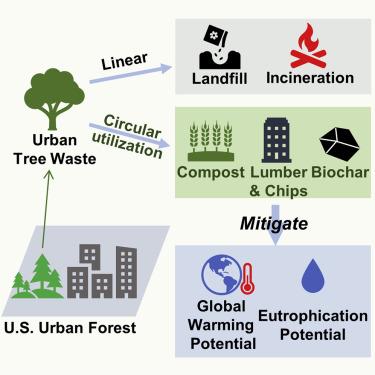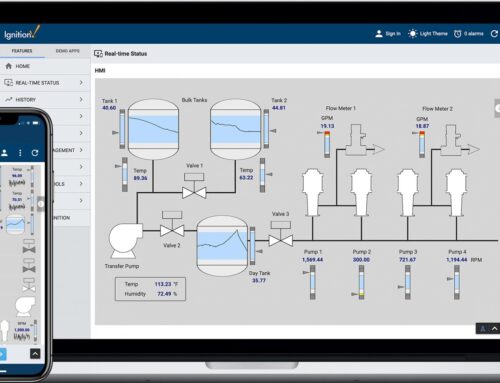Creating Plant-Wide waste Metrics for Environmental Reporting
In today’s increasingly regulated and environmentally conscious marketplace, the ability to accurately measure and report waste metrics is essential for recycling plants. Crafting a robust system for tracking these metrics not only aids compliance with environmental regulations but also supports the broader goals of sustainability and operational efficiency. By leveraging advanced Industrial Internet of Things (IIoT) technologies and automation solutions like Ignition, recycling plants can create a comprehensive framework that captures, analyzes, and reports waste data effectively.
Key components of Plant-Wide Waste Metrics:
- Data Collection: implement automated systems to capture data from all points of the plant,including:
– Granulators
– Sorting systems
– storage areas
- Real-Time Tracking: Utilize sensors and Ignition’s dashboard tools to monitor:
– Batch output rates
– material flow and losses
- Equipment performance
- Alarm Triggers: Set up alerts for deviations from predefined thresholds,thus allowing for immediate intervention and preventing needless waste.
- Replacing Manual Logs: Transition to a digital logging system which:
– Reduces human error
- Enhances data accuracy
– Streamlines reporting processes
- Downtime Analysis: Analyze downtime sources to minimize interruptions and improve throughput,addressing issues with equipment or operational practices.
- Environmental Reporting: Develop a standardized reporting format that allows stakeholders to:
– Easily understand waste metrics
– Comply with regulations
– demonstrate sustainability efforts to clients and regulators
- Continuous Improvement: Establish a feedback loop that utilizes reported data to drive iterative improvements, resulting in enhanced efficiencies and reduced waste.
This article delves into effective strategies for developing plant-wide waste metrics tailored to the unique needs of recycling facilities, showing how Ignition can help deliver actionable insights that enhance both operational and environmental performance. By establishing a clear understanding of current waste outputs, recycling plants can take notable steps toward not only compliance but also leadership in sustainability practices.
Establishing Key Performance Indicators for Waste Management Efficiency
Establishing key Performance Indicators (KPIs) for waste management is crucial for optimizing efficiency and enhancing environmental reporting in recycling plants. Effective KPIs should measure both operational performance and environmental impact, allowing operators to make informed decisions. Examples of valuable KPIs include:
- Recycling Rate: The percentage of total waste collected that is successfully recycled. A facility with a recycling rate of over 75% indicates effective sorting and processing.
- Material Recovery Rate: The amount of material recovered versus the total amount of waste processed. For example, a granulator that recovers 85% of materials from input waste demonstrates high efficiency and effectiveness.
- Downtime Rate: The frequency and duration of downtime incidents affecting processing equipment. Identifying patterns can help in prompt maintenance and improvement strategies.
- Environmental Impact Score: A composite metric incorporating CO2 emissions, water usage, and energy consumption. As a notable example, a score reduction over time showcases enhanced sustainability practices.
Setting these KPIs requires integrating real-time data monitoring systems, which can be achieved through software like Ignition. For example, a sorting system can track the throughput and sort accuracy rates while enabling alerts for equipment malfunctions that lead to downtime. By implementing these metrics into daily operations, facilities can conduct meaningful analyses to determine areas for improvement. Moreover, the use of dashboards in Ignition can present real-time visualizations of KPIs, allowing for rapid assessments and informed decisions, such as adjusting workflows to optimize resource allocation and reduce waste.
Implementing Automated Data Collection Systems for Real-Time Waste Tracking
The implementation of automated data collection systems is pivotal for achieving precise real-time waste tracking in recycling facilities. By integrating solutions like Ignition,operators can streamline production processes and improve data accuracy. For instance, consider a facility that employs granulators for plastic waste. By installing sensors on these machines, you can capture crucial metrics such as operational throughput, material feed rates, and downtime instances. Ignition can aggregate this data into a centralized dashboard, displaying metrics such as daily granulation rates, percentage of recycled materials, and machine efficiency in real-time. This approach not only enhances visibility into operations but also reduces the burden of manual logging, minimizing human error and ensuring that your environmental reporting reflects accurate figures.
Furthermore, downtime analysis can be effortlessly bolstered through automated data collection systems. For example, imagine a sorting system facing frequent halts due to mechanical failure. By employing Ignition’s alarm capabilities, operators can set triggers that alert maintenance teams in real-time when certain thresholds are breached. This proactive approach allows for immediate interventions, consequently maximizing uptime and productivity. Implementing these strategies not only benefits internal process efficiencies but also enhances external communications regarding your sustainability efforts. Key aspects for your automated data collection might include:
- Real-time performance monitoring
- Instant alarms for operational anomalies
- Comprehensive batch tracking
- Seamless integration with existing company databases
This synergy between technology and operations lays the groundwork for reliable environmental metrics essential for regulatory compliance and corporate social responsibility initiatives.
Integrating Environmental Reporting Tools for Compliance and Transparency
Implementing effective environmental reporting tools is crucial for ensuring compliance with regulations and fostering transparency with stakeholders. By integrating systems that capture real-time data on waste generation,recycling rates,and energy consumption,plants can create a comprehensive overview of their environmental impact.For instance, using Ignition’s reporting capabilities, facilities can automatically pull data from various sources to generate detailed reports that align with environmental compliance standards, such as those set by local governing bodies or international frameworks like the ISO 14001. Utilizing cloud-based solutions allows decision-makers to access these reports at any time, ensuring that management is always informed about the plant’s operational performance.
Along with regulatory adherence, these reporting tools enable plants to establish key performance indicators (KPIs) that facilitate ongoing improvement strategies. Examples of useful KPIs include:
- Percentage of waste diverted from landfills
- Recycling rates by material type
- Energy consumed per unit of output
By continuously monitoring these metrics through a centralized dashboard, operators can quickly identify trends, leading to proactive measures that enhance waste management processes. For example, if a spike in non-recyclable waste is detected during a specific shift, immediate adjustments to operations can be made, ultimately improving both efficiency and environmental impact. This proactive approach not only enhances transparency with stakeholders but also cultivates a commitment to sustainability throughout the organization.
Conducting Continuous Improvement Programs through Data Analysis and Feedback Loop
Incorporating data analysis into continuous improvement programs is essential for enhancing plant-wide waste metrics, particularly in recycling operations.By leveraging real-time data from systems like Ignition, facilities can seamlessly track and evaluate their waste generation and handling. As an example, using sensors on granulators to monitor output quality and quantity allows for precise measurement of materials processed. Analysis of this data not only helps in identifying production inefficiencies but also facilitates proactive adjustments that minimize waste. Key strategies to implement include:
- Centralized Data Collection: Integrate all relevant data sources through Ignition to provide a holistic view of waste management practices.
- dashboard Visualization: Create user-pleasant dashboards that display real-time metrics on waste generation, processing rates, and recycling efficiency.
- Benchmarking: Establish baseline metrics from ancient data to gauge current performance and set realistic improvement targets.
Feedback loops are equally vital for fostering a culture of continuous improvement. Regular team reviews based on analytics empower staff to identify opportunities for operational enhancements. For example, if analysis reveals consistent downtime in sorting systems during peak hours, teams can collaborate to deepen their understanding of root causes and devise effective solutions, such as scheduling maintenance during off-peak hours. Additionally, integrating employee feedback on waste management procedures can lead to innovative solutions that support environmental goals. Consider these practices for effective feedback loops:
- Monthly Review Meetings: Organize sessions where performance metrics are discussed, and input from operational staff is collected.
- Suggestion Programs: Implement formal mechanisms where employees can submit ideas aimed at reducing waste or enhancing efficiency.
- Continuous Training: Provide ongoing education sessions that utilize data insights to inform staff about best practices in waste reduction.
To conclude
establishing comprehensive plant-wide waste metrics is essential for any recycling facility aiming to enhance its environmental reporting strategy.By effectively leveraging Ignition, you can achieve robust data collection and analysis that not only meets compliance requirements but also drives operational efficiency. Key takeaways from this discussion include:
- Data Integration: Seamlessly aggregate data across different systems to maintain a unified view of all waste metrics.
- Real-Time Monitoring: Implement live tracking of waste outputs to identify trends and take immediate action when anomalies are detected.
- Automated Reporting: Replace manual log entries with automated reports to minimize errors and save time, ensuring that your environmental impact is accurately documented.
- Downtime Analysis: Use historical data to analyze and mitigate downtime in granulators and sorting systems, ultimately optimizing resource use.
At Innorobix, we are committed to helping you harness the power of automation to not only enhance your operational performance but also to meet sustainability goals and reporting standards. Explore our solutions further or request a consultation/demo to see how we can assist you in transforming your waste management processes into a model of efficiency and accountability. Together, we can make strides toward a more sustainable future for the recycling industry.

















